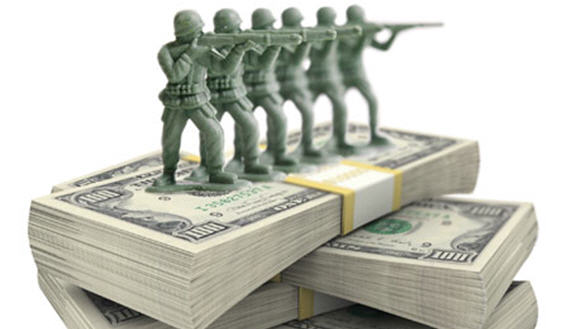
Europe’s Big Three are slashing already paltry defense budgets in the wake of the global recession. Germany’s cuts could be as deep as forty percent. Some are arguing that this will be a good thing for transatlantic security, forcing the allies to rationalize spending and interlink their forces more effectively.
Reuters‘ Dave Graham reports in "German army cuts to push Europe closer on defence" that several European politicians are selling this viewpoint.
"Budgetary and security considerations will raise pressure to find a joint defence and security policy," said Elke Hoff, defence policy spokeswoman for Germany’s Free Democrats (FDP), coalition partners to Chancellor Angela Merkel’s conservatives. "Financial stability is increasingly being regarded as a key security issue in a globalised world," she told Reuters.
German Defence Minister Karl-Theodor zu Guttenberg and his French counterpart Herve Morin last week said they would set up an informal working group to target joint efficiency measures. The two allies had decided "to look together for what resources we can pool or share … to make efficiency gains, budget savings and economies of scale," Morin said.
In a speech last month, Britain’s Defence Secretary Liam Fox called for bilateral co-operation on defence to be stepped up "particularly with nations who share our interests and are prepared to both pay and fight, such as France".
Though NATO Secretary-General Anders Fogh Rasmussen has argued member states in the military alliance must combine their resources more, it may be slow to materialise.
Nick Witney, former head of the European Defence Agency, now a senior policy fellow at the European Council on Foreign Relations, said governments would initially probably try to avoid making any binding international commitments. "I hope that … once the dust has settled from this financial collapse people will look around and say, ‘We will have very little defence capability left if we continue to duplicate it all on a national basis’, so the logic of pooling efforts and resources will, I hope, reassert itself," he said.
In Britain, analysts see scope for cooperation with France over combat jets. Some say Britain may pursue savings by buying French Rafale fighters built by Dassault, perhaps as part of a deal with France on a British air-to-air refuelling project.
Erik Brattberg, a research assistant with the Swedish Institute of International Affairs, is similarly hopeful. Rather than keying on the belt tightening, he points to signs that the Obama administration is paying less attention to Europe. But the prescription is the same: "[T]he EU, rather than lamenting about Washington’s apparent downplaying of the transatlantic relationship, should seek to utilize the post-Lisbon momentum to step up its efforts of becoming a more effective foreign policy actor, thus also becoming a more attractive strategic partner to the United States." Specifically,
First, the EU should quickly move forward on implementation of the External Action Service (EEAS), allowing the Union’s new diplomatic service to begin its important work of mustering the EU’s diplomatic strength. So far, the debate around the EEAS has precluded any more long-term strategic thinking. With Lisbon in place, time is now also ripe to update the outdated European Security Strategy.
Secondly, Europe must stand shoulder to shoulder with the US on its most pressing foreign policy concerns: Afghanistan and Iran. Even after an eventual withdrawal of the ISAF-forces from Afghanistan, some international forces will necessarily have to remain in the country, training and supporting the Afghan National Security Forces. Europe must be willing to share this burden with the US while also taking the lead on other civilian goals such as long-term economic reconstruction. On Iran, Catherine Ashton should resume talks with Teheran in close coordination with US officials.
Finally, it is paramount that European leaders resist the obvious temptation of reducing defense spendings in times of financial turmoil. Instead the work of reinforcing the EU’s crisis management capacity – an area in which Europe has a clear comparative advantage against the United States – must be carried on tirelessly.
Of course, the last of these is already OBE, despite the piece having been published today. It’s simply a given that the European contribution to the transatlantic defense equation will be much smaller in 2011 than in 2010, and it’s unlikely that we’ll see a return to even today’s levels — long subject to complaints from Washington — any time soon.
Regardless, the approach makes sense. Given the political and economic realities, the most realistict way for Europe to retain relevance as a military ally of the United States is efficiency. Since spending is going to be even more stingy, it has to be more careful and focused. Elimination of redundancies in procurement, administrative overhead, and the like is a good start. Even better will be an across-the-board review of needs and capabilities to both avoid duplication of effort and ensure each Ally can bring something meaningful to the table.
James Joyner is managing editor of the Atlantic Council.
Image: defense-spending.jpg
